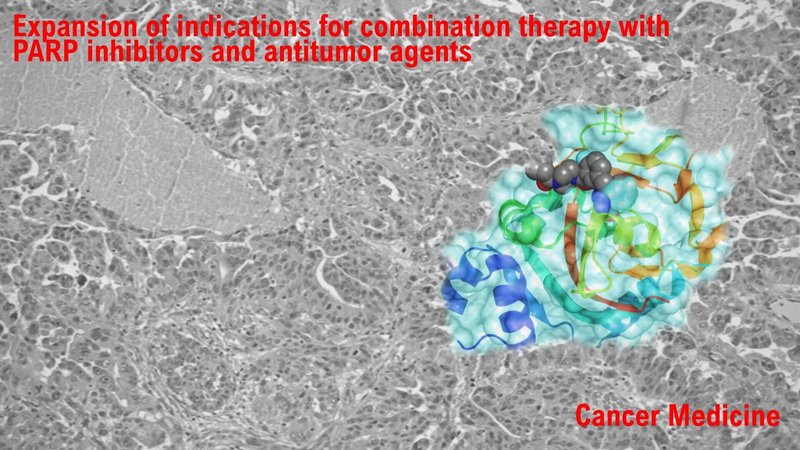Potential expansion of indications for combination therapy with PARP inhibitors and anti-tumor agents

Inhibition of poly (ADP-ribose) polymerase (PARP) has been applied with great success in the clinical treatment of homologous recombination-deficient (HRD) malignancy.
Among the 15 selected genes (BRCA1, BRCA2, ATM, BRIP1, BARD1, CDK12, CHEK1, CHEK2, FANCL, PALB2, PPP2R2A, RAD51B, RAD51C, RAD51D, RAD54L) that perform homologous recombination repair (HR), pathogenic variants in BRCA1/2, ATM, or CDK12 have been identified as genetic mutations most responsive to PARP inhibitors against castration-resistant prostate cancer (CRPC).
On the other hand, the immune checkpoint inhibitors have also been shown to be effective against CRPC with pathogenic variants in CDK12.
During the period from December 2019 to November 2022, the treatment methods for a total of 2389 cases (Ncc oncopanel test: 594 cases, F1CDx test: 1795 cases) were considered by cancer genomic medicine at a national university in Japan. A total of 252 cases with progressive CRPC in Japanese were examined for treatment in cancer genomic medicine.
As a result of cancer genomic medicine, pathogenic variants in CDK12 were detected in a total of 58 cases of CRPC patients (Ncc oncopanel: 6 cases, F1CDx: 52 cases). In clinical trials in Japan, the combination therapy with pembrolizumab and olaparib was performed for 28 cases with progressive CRCP, and therapy with olaparib alone was performed for 30 cases with progressive CRPC. Results of clinical trials to date suggest that pembrolizumab and olaparib combination therapy for progressive CRPC has better therapeutic efficacy than olaparib alone.
Combination therapy with olaparib and bevacizumab has been shown to be effective in patients with high-grade serous ovarian cancer with HRD detected by the companion test (myChoice). Combination therapy with a PARP inhibitor and an anti-tumor drug for HRD-positive patients with cancer is considered to expand the indications.
No, we do not have potential conflicts of interest.
Doctors specializing in cancer medicine/doctors specializing in emerging infectious diseases
JAMA Oncology, published on December 4, 2022 by Kyoto@takumaH
この記事が気に入ったらサポートをしてみませんか?
